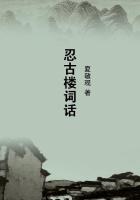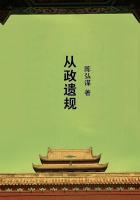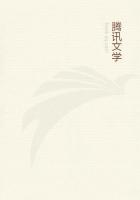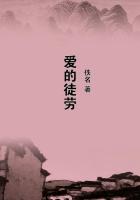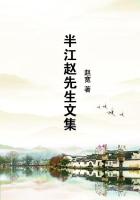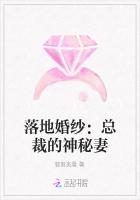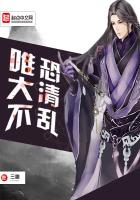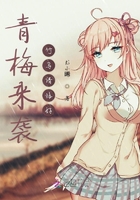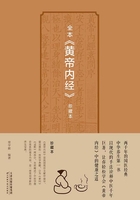THE vanquished and afflicted Don Quixote went along very downcast in one respect and very happy in another. His sadness arose from his defeat, and his satisfaction from the thought of the virtue that lay in Sancho, as had been proved by the resurrection of Altisidora; though it was with difficulty he could persuade himself that the love-smitten damsel had been really dead. Sancho went along anything but cheerful, for it grieved him that Altisidora had not kept her promise of giving him the smocks; and turning this over in his mind he said to his master, "Surely, senor, I'm the most unlucky doctor in the world; there's many a physician that, after killing the sick man he had to cure, requires to be paid for his work, though it is only signing a bit of a list of medicines, that the apothecary and not he makes up, and, there, his labour is over; but with me though to cure somebody else costs me drops of blood, smacks, pinches, pinproddings, and whippings, nobody gives me a farthing. Well, I swear by all that's good if they put another patient into my hands, they'll have to grease them for me before I cure him; for, as they say, 'it's by his singing the abbot gets his dinner,' and I'm not going to believe that heaven has bestowed upon me the virtue I have, that I should be dealing it out to others all for nothing."
"Thou art right, Sancho my friend," said Don Quixote, "and Altisidora has behaved very badly in not giving thee the smocks she promised; and although that virtue of thine is gratis data- as it has cost thee no study whatever, any more than such study as thy personal sufferings may be- I can say for myself that if thou wouldst have payment for the lashes on account of the disenchant of Dulcinea, I would have given it to thee freely ere this. I am not sure, however, whether payment will comport with the cure, and I would not have the reward interfere with the medicine. I think there will be nothing lost by trying it; consider how much thou wouldst have, Sancho, and whip thyself at once, and pay thyself down with thine own hand, as thou hast money of mine."
At this proposal Sancho opened his eyes and his ears a palm's breadth wide, and in his heart very readily acquiesced in whipping himself, and said he to his master, "Very well then, senor, I'll hold myself in readiness to gratify your worship's wishes if I'm to profit by it; for the love of my wife and children forces me to seem grasping. Let your worship say how much you will pay me for each lash I give myself."
"If Sancho," replied Don Quixote, "I were to requite thee as the importance and nature of the cure deserves, the treasures of Venice, the mines of Potosi, would be insufficient to pay thee. See what thou hast of mine, and put a price on each lash."
"Of them," said Sancho, "there are three thousand three hundred and odd; of these I have given myself five, the rest remain; let the five go for the odd ones, and let us take the three thousand three hundred, which at a quarter real apiece (for I will not take less though the whole world should bid me) make three thousand three hundred quarter reals; the three thousand are one thousand five hundred half reals, which make seven hundred and fifty reals; and the three hundred make a hundred and fifty half reals, which come to seventy-five reals, which added to the seven hundred and fifty make eight hundred and twenty-five reals in all. These I will stop out of what I have belonging to your worship, and I'll return home rich and content, though well whipped, for 'there's no taking trout'- but I say no more."
"O blessed Sancho! O dear Sancho!" said Don Quixote; "how we shall be bound to serve thee, Dulcinea and I, all the days of our lives that heaven may grant us! If she returns to her lost shape (and it cannot be but that she will) her misfortune will have been good fortune, and my defeat a most happy triumph. But look here, Sancho; when wilt thou begin the scourging? For if thou wilt make short work of it, I will give thee a hundred reals over and above."
"When?" said Sancho; "this night without fail. Let your worship order it so that we pass it out of doors and in the open air, and I'll scarify myself."
Night, longed for by Don Quixote with the greatest anxiety in the world, came at last, though it seemed to him that the wheels of Apollo's car had broken down, and that the day was drawing itself out longer than usual, just as is the case with lovers, who never make the reckoning of their desires agree with time. They made their way at length in among some pleasant trees that stood a little distance from the road, and there vacating Rocinante's saddle and Dapple's pack-saddle, they stretched themselves on the green grass and made their supper off Sancho's stores, and he ****** a powerful and flexible whip out of Dapple's halter and headstall retreated about twenty paces from his master among some beech trees. Don Quixote seeing him march off with such resolution and spirit, said to him, "Take care, my friend, not to cut thyself to pieces; allow the lashes to wait for one another, and do not be in so great a hurry as to run thyself out of breath midway; I mean, do not lay on so strenuously as to make thy life fail thee before thou hast reached the desired number; and that thou mayest not lose by a card too much or too little, I will station myself apart and count on my rosary here the lashes thou givest thyself. May heaven help thee as thy good intention deserves."
"'Pledges don't distress a good payer,'" said Sancho; "I mean to lay on in such a way as without killing myself to hurt myself, for in that, no doubt, lies the essence of this miracle."
He then stripped himself from the waist upwards, and snatching up the rope he began to lay on and Don Quixote to count the lashes. He might have given himself six or eight when he began to think the joke no trifle, and its price very low; and holding his hand for a moment, he told his master that he cried off on the score of a blind bargain, for each of those lashes ought to be paid for at the rate of half a real instead of a quarter.

